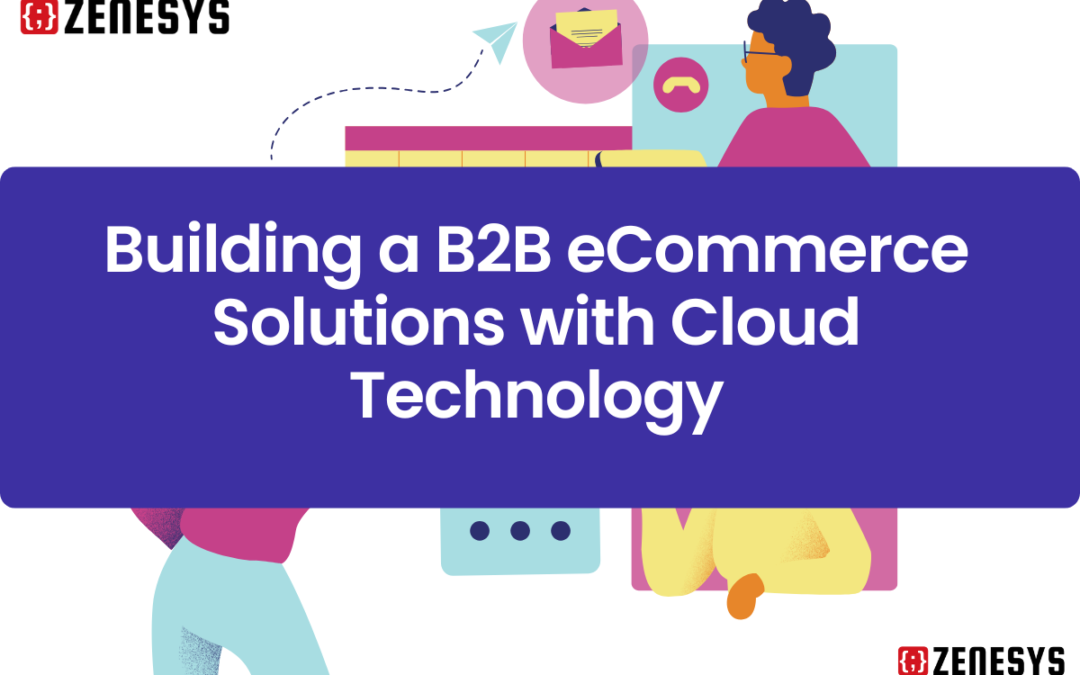In today’s fast-evolving business landscape, eCommerce has transcended from a retail-only domain to include robust business-to-business (B2B) solutions. B2B eCommerce platforms enable organizations to streamline operations, enhance customer experiences, and increase profitability. With cloud technology becoming a backbone for modern digital transformation, building scalable B2B eCommerce solutions is now more achievable than ever. This article delves into why cloud technology is essential for B2B eCommerce, how it works, and what considerations you should keep in mind when developing a scalable platform.
What Are B2B eCommerce Solutions?
B2B eCommerce refers to the online transactions that occur between businesses, such as manufacturers, wholesalers, and retailers. Unlike business-to-consumer (B2C) platforms, which cater to individual customers, B2B platforms are designed to manage bulk orders, complex pricing structures, and long-term buyer-seller relationships.
A well-architected B2B eCommerce solution allows businesses to:
- Automate procurement processes.
- Offer customized pricing.
- Manage multiple users under one account.
- Integrate with enterprise resource planning (ERP) and customer relationship management (CRM) systems.
Why Cloud Technology for B2B eCommerce?
1. Scalability: One of the most significant advantages of cloud technology is its scalability. Traditional on-premise systems often falter under increased demand, whereas cloud platforms can scale up or down as per the business requirements. For example, during seasonal demand surges, cloud systems allocate more resources automatically, ensuring seamless operations.
2. Cost Efficiency: Cloud-based solutions eliminate the need for expensive hardware and extensive IT infrastructure. Businesses pay only for the resources they use, which makes cloud technology a cost-effective choice for startups and established enterprises alike.
3. Speed and Agility: Launching or expanding a B2B eCommerce platform becomes faster with cloud solutions. Cloud services provide pre-built templates, APIs, and tools that reduce development time and enable quicker time-to-market.
4. Enhanced Security: Cloud providers invest heavily in security measures such as data encryption, firewalls, and compliance with global standards like GDPR or HIPAA. This level of protection ensures that sensitive business data remains secure.
5. Seamless Integration: Cloud technology supports easy integration with third-party applications like payment gateways, shipping solutions, ERP, and CRM systems, creating a unified operational ecosystem.
6. Global Reach: With cloud infrastructure, businesses can expand their reach globally without setting up physical servers in different locations. Content delivery networks (CDNs) and localized hosting options ensure fast loading times and consistent user experiences worldwide.
How to Build a Scalable B2B eCommerce Solution
Building a B2B eCommerce solution with cloud technology involves multiple steps. Here’s a comprehensive guide:
1. Understand Business Requirements: Identify the core needs of your business and your target audience. What features do your clients expect? What challenges are they facing that your platform can solve? Understanding these elements will guide the development process.
2. Choose the Right Cloud Provider: Evaluate cloud providers based on scalability, cost, security, and support. Popular options include AWS, Microsoft Azure, and Google Cloud. Consider factors like uptime guarantees, data backup options, and customer support quality.
3. Design User-Centric Interfaces: User experience (UX) is critical for B2B platforms. Design intuitive navigation, easy ordering processes, and responsive interfaces that cater to both desktop and mobile users.
4. Implement Essential Features: Some must-have features for a B2B eCommerce platform include:
- Bulk order management.
- Flexible pricing structures.
- User roles and permissions.
- Real-time inventory tracking.
- Integrated payment and shipping options.
5. Leverage APIs: Cloud platforms provide APIs to integrate various functionalities seamlessly. For example, use payment gateway APIs for transactions and ERP APIs for backend process synchronization.
6. Focus on Security: Ensure your platform complies with relevant security standards. Employ encryption, two-factor authentication, and regular vulnerability assessments.
7. Test for Scalability: Conduct performance testing to simulate high-traffic scenarios. This helps ensure that your platform can handle increased loads without crashing or slowing down.
8. Monitor and Optimize: Use cloud-based analytics tools to monitor platform performance, user behavior, and sales metrics. Continuously optimize the platform based on data insights to improve user experience and operational efficiency.
Real-World Benefits of Cloud-Based B2B eCommerce
Businesses that adopt cloud-based B2B eCommerce solutions experience several tangible benefits:
- Improved Operational Efficiency: Automated workflows reduce manual errors and save time.
- Enhanced Customer Satisfaction: Features like personalized dashboards and 24/7 access to order histories foster better client relationships.
- Faster Innovation: Cloud platforms’ modular nature allows businesses to experiment with new features and deploy updates rapidly.
- Data-Driven Insights: Built-in analytics provide actionable insights into customer behavior, sales trends, and operational bottlenecks.
Why Choose a B2B eCommerce Development Company?
If you’re looking to build a scalable B2B eCommerce platform, Zenesys is a trusted partner. They provide end-to-end B2b ecommerce development solutions tailored to your business needs. From design and development to integration and optimization, Zenesys ensures that your platform is equipped to handle modern-day challenges. Their expertise in creating robust and secure eCommerce solutions helps businesses achieve their goals faster and more efficiently.
Conclusion
Building a scalable B2B eCommerce solution is not just a technological decision—it’s a strategic move to future-proof your business. Cloud technology offers the flexibility, cost-efficiency, and performance needed to stay competitive in today’s dynamic market. By carefully planning and executing the development process, businesses can create platforms that deliver value to their clients while streamlining operations.
If you’re ready to embark on your B2B eCommerce journey, consider partnering with Zenesys. Their comprehensive development solutions ensure that your platform is built to scale and adapt to your business’s growing needs.
Next Read: How E-commerce Services Simplify Online Store Management
